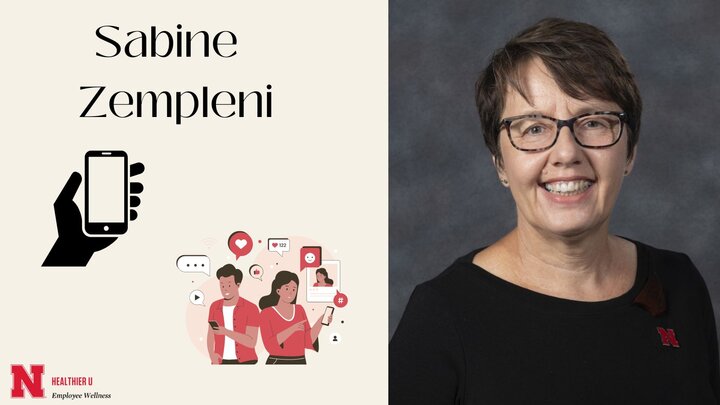Do you find yourself reaching towards social media when you are looking for advice regarding health and wellness?
There are a few things you may want to consider when starting to scroll through social media. I talked to Sabine Zempleni, a professor at UNL (University of Nebraska Lincoln), who teaches a few courses relating to nutrition communication and healthy living. One of her classes is “Health Information: Science, Social Media, and the Consumer;” this class dives into evaluating social media claims based on evidence and facts.
According to Sabine, “The most important thing to know is that social media influencers aim for clicks and views. Even dietitian or physician influencers fall into this trap. New and surprising content will bring clicks and views which in turn will bring in revenue. If your income depends on your social media accounts, you need to generate interesting and updated content. On the other hand, nutrition recommendations are boring: Eat all foods in moderation; start with eating your fruits, vegetables and whole grains then add other foods; do not eat so much sugary foods and drink sugary beverages; eat more fresh foods and less fast food. Not exciting at all, not click worthy. If the influencer provides advice that sounds too good to be true, it is. Results in nutrition are not quick or amazing. Results are slow and take time.”
Sabine offered some red flags to look out for when you are browsing on social media. According to Sabine, you should avoid any information that offers a “quick and easy fix” because results in nutrition do not come quickly. If someone says that certain foods are toxic you should stay away from that influencer because all foods are okay in moderation. Some foods that are high in sugar may increase weight if they are eaten in excessive amounts and often, but if it is occasionally, that is not going to make you unhealthy. Another piece of advice is to look out for influencers that promote supplements and food products that aim to replace eating. There is no quality control for those supplements which can make them dangerous. Lastly, be aware of the influencer’s biases because they may have strong opinions and not provide all the necessary information on certain topics.
The amount of information online can be very overwhelming, and a lot of the time it is very contradictory which can be very confusing for consumers because it makes it impossible to figure out what is the optimal choice for you. Not having clear advice can become frustrating because it can send people in a cycle of trial and error. I hope this information is useful for your everyday endeavors on the web.
References:
Ramachandran D, Kite J, Vassallo AJ, Chau JY, Partridge S, Freeman B, Gill T. Food Trends and Popular Nutrition Advice Online - Implications for Public Health. Online J Public Health Inform. 2018 Sep 21;10(2):e213. doi: 10.5210/ojphi.v10i2.9306. PMID: 30349631; PMCID: PMC6194095.
Rutgers University. "Conflicting health information compromises attention and emotional responses." ScienceDaily. ScienceDaily, 11 November 2021. <www.sciencedaily.com/releases/2021/11/211111154258.htm>.



